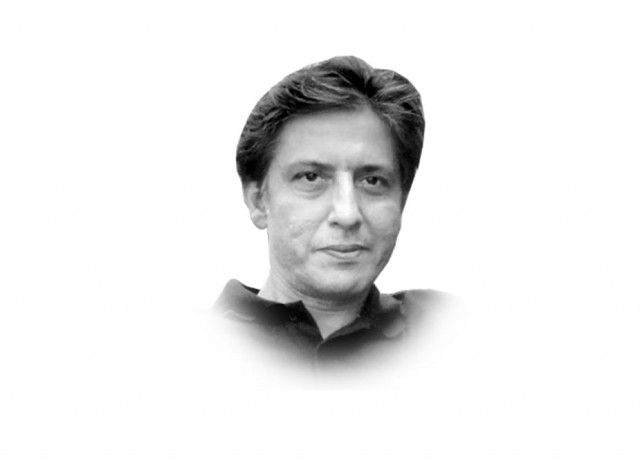How about (super) models!
Dr Ayesha Siddiqa’s somewhat hasty critique of Air Marshal Shahzad Chaudhry’s article has surprised me.

How about (super) models!
Now to the substance: what is Siddiqa cavilling at in Chaudhry’s article — the mention of the Bangladesh model? Before we get to that, let me say upfront that I am opposed to any top-down reforms based on extra-constitutional measures. I also think that recent rumours of a national government or a technocratic set-up, if they were to become a reality, would do more harm than good to Pakistan.
Having set that aside, let me say that Chaudhry does not seem to be advocating a “model”. He simply put across some facts: one, the Bangadeshi army did not get into the driver’s seat (neither do we want our army to do that); two, it helped put together an independent election commission (we would all like to have an independent election commission). In fact, Chaudhry pointed out that in Pakistan, contrary to what the army in Bangladesh had done, we created an NRO and attempted to undermine the judiciary.
Chaudhry seems to be referring to what happened then rather than what should happen now. And if I have got this wrong, and he wants the army to streamline the system here, then he has another opponent to contend with in this writer.
In fact, Chaudhry writes about what the government of Hasina Wajid has done, including declaring the country secular and thereby making the clergy irrelevant to the functioning of the state and the process of legislation. I would like that to happen in Pakistan. Which is why Chaudhry argues that since the 2008 elections, some more significant changes have occurred — “perhaps a Bangladesh model II,” as he put it.
But Siddiqa ignores this altogether and writes: “Had Mr Chaudhry looked deeper, he might have discovered two broad reasons for why Bangladesh has performed better than Pakistan. Despite the high polarisation of the Bangladeshi state and society, they are largely committed to a secular identity.” In her hurry, she ignored what Chaudhry had written.
Her second point is even more problematic: “To Bangladesh’s advantage, its military’s initial structure was not professional despite the fact that the bulk of its officers were those [sic!] repatriated from Pakistan.” What does this mean when she also agrees that the Bangladeshi army mounted coups d'état? Not having developed a national narrative so it can be pushed out? She needs to re-evaluate the position of the army in that polity.
Now to the Grameen Bank. Siddiqa is right about critiques of the Grameen model. But equally true is the fact that the model is still being replicated in other parts of the world including in Pakistan, the Kashf Foundation being one such example. Interestingly, Grameen has gone on to expand to America! The point is, like all models it has its downside. But that cannot take away its pluses. Also, the downside of a good model doesn’t mean doing away with the model but requires tweaking it to make it better. If a good sub can make a sloppy copy look good, surely models (fashion ones included) can also be improved!
Grameen’s relative success is without doubt. Whoever disagrees with this can take up the issue with the Nobel committee! Chaudhry is right in pointing out that Grameen, for the most part, has helped empower Bangladeshi women. There are statistics to prove that and I am sure Siddiqa knows that fact.
Finally, some points on the language for the line editor who dealt with Siddiqa’s piece. My dear sir/ma’am, her sentence, “Mr Chaudhry and others of his ilk” should have been recast because it comes across as ad hominem. Debate should always be strictly about issues. Secondly, “continues to paddle” should have been “peddle”. Make your writers look good; that’s your job!
Published in The Express Tribune, October 27th, 2010.














COMMENTS
Comments are moderated and generally will be posted if they are on-topic and not abusive.
For more information, please see our Comments FAQ